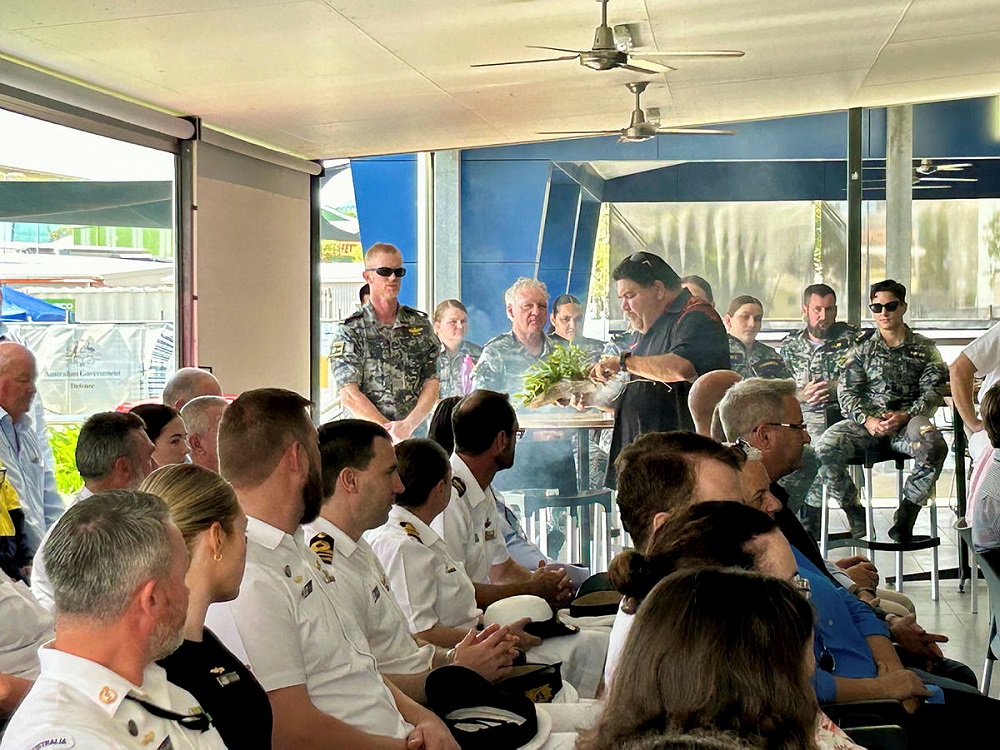
Collaboration with private and public sector stakeholders is vital for Defence to develop its capabilities, strategies and policies in response to Australia’s changing strategic environment. Getting consultation right will be critical to that.
Defence’s need for collaboration is reflective of government in a federated nation relying upon collaboration across several layers: local, state and territory, and federal. Government consultation is a cornerstone of Australia’s democratic process, serving as a means for policymakers to engage with stakeholders, gather diverse perspectives, and make informed decisions.
For Defence, collaboration and consultation will underpin continued social licence and enable effective state and territory, local government, and/or private sector support.
The monolithic Australian Defence Organisation, while rightfully focused on its mission, engages in widespread and frequent consultation. Despite this, criticism of its consultation prevails, especially during the last 18 months. For the most part, this critique has related to a lag in information flows from Defence to industry, and to state and territory and local governments.
Consultation between state and territory and local government and the Defence organisation on basing and exercising, often enabled by these jurisdictions engaging Defence advocates, is a continuous process.
Yet in September 2023, the Army announced it would move some 800 additional defence personnel and their dependants to Townsville in 2025 as part of its annual posting cycle. With a population of almost 180,000, Townsville faces a population increase of more than 0.5% in 12 months. It will put significant pressure on housing and social infrastructure, such as schools.
With limited engagement, the Townsville and Queensland governments need help ensuring they are ready to welcome many new community members.
Defence puts significant effort into industry engagement. Yet in January, Defence Connect’s 2023 Australian Defence Industry Report revealed that of the survey respondents, 36% and 11% respectively, described doing business in Australia’s defence industry as ‘difficult’ and ‘extremely difficult’.
Only 20% of respondents considered it ‘easy’, while 3% considered it ‘extremely easy’. Such results may reflect Defence’s expectation that businesses ‘get battle fit’ instead of cultivating a more collaborative ecosystem.
While much of this concern can be linked to the uncertainty surrounding the defence strategic review, discussions with small to medium enterprises (SMEs) reveal their concern over Defence’s lack of empathy and consideration of the commercial reality for Australian businesses. More effective consultation is needed in at least some circumstances.
For several reasons, including national security, it can be challenging for Defence to make early engagement and consultation with outside entities. However, it is essential to recognise that consultation is not merely a one-way information dissemination process; it embodies a dynamic exchange of ideas, feedback, and expertise between government and stakeholders. To achieve true partnerships, it’s imperative to establish clear guidelines and mechanisms for engagement. The Defence Organisation will need to work fast to address the impacts of the DSR on consultation. Engagement must be earlier, more frequent, and more comprehensive. Here, there is an apt truism—clarity is kindness.
Defence’s consultation and engagement should seek to embody five key themes.
The Defence Organisation must engage with the idea of cooperative federalism. Pre-Covid, many federal public servants considered that power in the federation was centralising. Covid proved this wasn’t the case. Defence must embrace the idea that the federal government and states work together as equal partners to address common challenges and achieve shared objectives. Cooperative federalism requires Defence to embrace joint decision-making processes to ensure that policies and initiatives reflect diverse perspectives and priorities.
Defence decisions that impact others must be underpinned by inclusivity, embracing consultation as a two-way conversation. Defence can ensure that a wide range of voices, opinions, and interests are considered in the decision-making process. While Defence’s expertise is broad and deep, inclusive stakeholder engagement enables policymakers to gather valuable insights, perspectives, and expertise that may not be otherwise available, fostering more inclusive and representative decision-making.
While Defence is widely supported and trusted in Australia, it must continuously focus on building trust and legitimacy, especially with the private sector. A two-way consultation process helps build confidence and legitimacy by demonstrating a commitment to transparency, openness, and responsiveness to stakeholder concerns and preferences. By actively soliciting input and feedback from stakeholders, Defence can enhance public confidence in the legitimacy of their decisions and policies.
Defence operates in a broader ecosystem, and engaging with this system will enhance its policy effectiveness. Engaging in two-way conversations with stakeholders will allow Defence to understand better the potential impacts, implications, and unintended consequences of proposed policies and initiatives. Stakeholder feedback can inform policy design, implementation strategies, and adjustments.
Defence must continue to promote accountability and responsiveness. Defence consultation as a two-way conversation promotes accountability by holding policymakers accountable to the public and ensuring that decisions reflect society’s broader interests and concerns. By actively listening to and engaging with stakeholders, Defence demonstrates a willingness to respond to feedback, adapt to changing circumstances, and course-correct when necessary, thereby enhancing responsiveness and accountability.
As stated earlier, Defence makes significant efforts to consult with local, state and territory governments and the private sector. The long-term uncertainty of government policy and budgets makes this engagement more difficult. The last two years have been particularly problematic when it comes to clarity and engagement. The defence strategic review 2023 and the surface fleet review, integrated investment program, estate review and national defence strategy are important for the long-term, but ensure uncertainty in the short term.
Regardless, it must enhance its engagement by focusing on working with, not through, its stakeholders. Instead of encouraging industry to get ‘battle fit’ to work with Defence, it must seek an environment that encourages and, where possible, nurtures sovereign SME capability.
The Defence Organisation will unlock greater social licence and capability if it engages stakeholders earlier, more openly, frequently and comprehensively.

